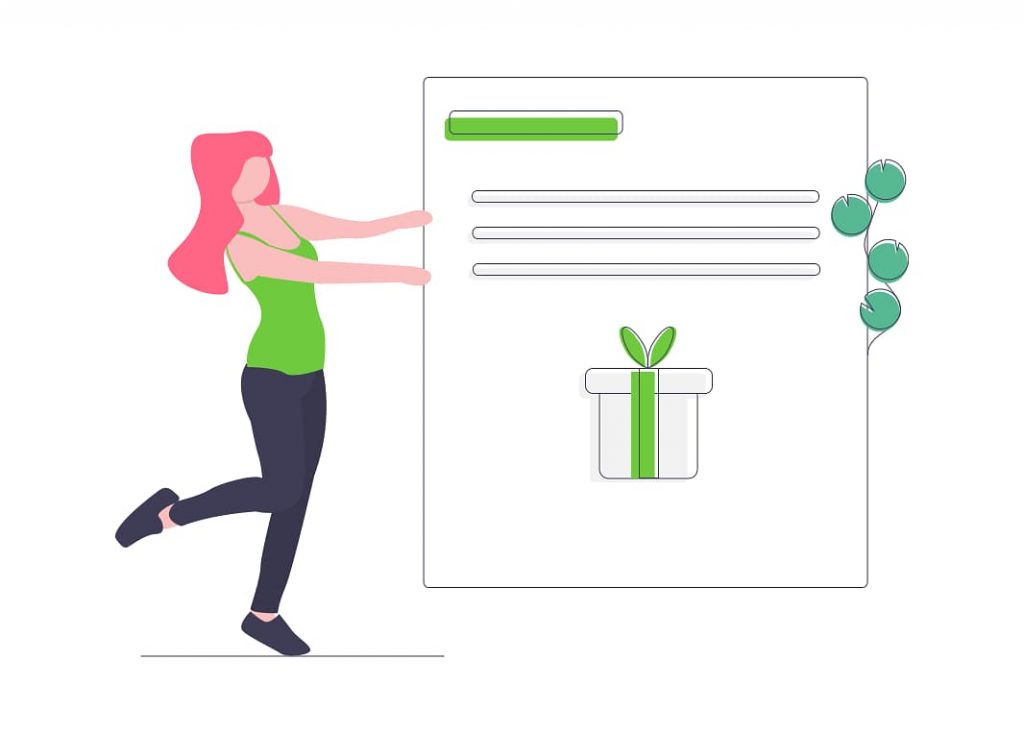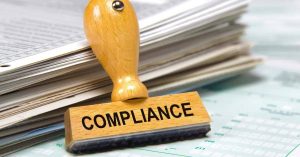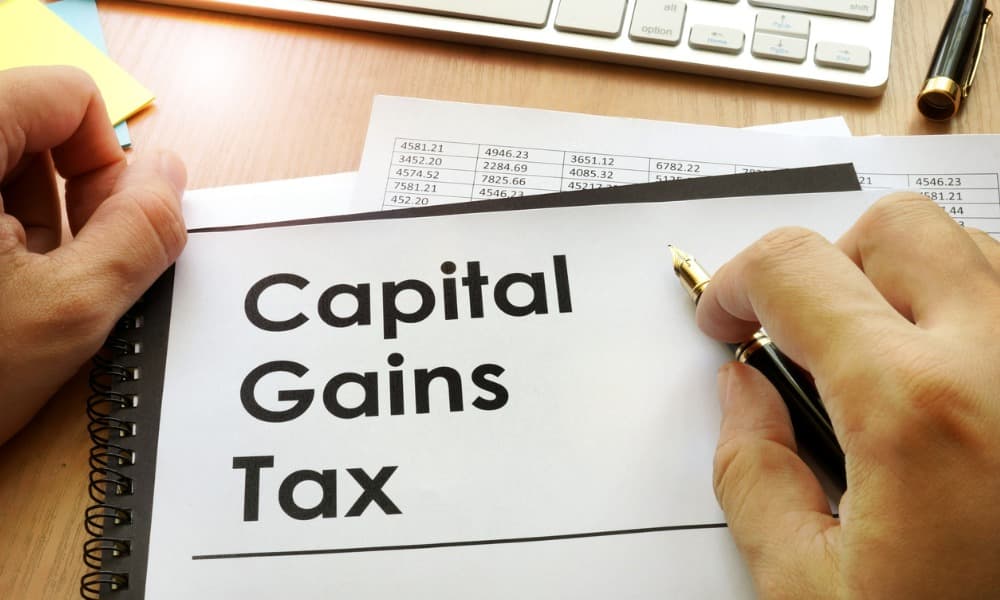According to a survey conducted by QuickBooks, 48% of business owners named taxes as the most challenging area of running a small business.
This is not unjustifiable, considering that the federal tax code is more than a million words long! That’s just as long as all of the Harry Potter books combined.
However, while tax laws can be complicated, filing taxes for your business does not need to be a nightmare.
The best place to start is by asking questions and getting clear on any areas you are unsure about.
If you do not inform yourself about business taxes, you may lose money (either through penalties or overstated taxes) and waste time when it comes to filing.
You might also lose some sleep worrying over whether you are compliant or not.
Fortunately, none of this is necessary.
Do you need to ask a tax question? If so, then read on—because we are about to share with you the mystical key to the top 13 small business tax questions that small business owners have.

1. Can I Run Personal Expenses Through My Business?
However, while you can use your business accounts or petty cash to pay for personal expenses, this is not always advisable.
Firstly, personal expenses are not tax-deductible and cannot be included in your business’s costs. Doing so will overstate your business expenses, which constitute tax fraud.
If you do use business bank accounts and funds to pay for personal expenses, separate these amounts from your books.
They are usually accounted for as drawings in bookkeeping. They can also be set off against any loans you might have made to your business.
While this is perfectly legal, it is not always the most efficient way to manage your personal and business finances.
In most cases, it is a lot simpler to pay over a lump sum to your personal account each month if you wish to draw income from your business.
In this way, your business and personal expenses are kept clearly separate.
Keep track of mixed business and personal expenses is not only inefficient, but it also skews your expense tracking and real-time accounting reports. Accurate reporting is essential for small business growth.
Mingling business and personal finances are one of the most common mistakes small business owners make. Do not make it yours.

2. Is My Gym Membership Tax Deductible?
One of the common questions among small business owners is, “is gym membership tax-deductible?”
No, personal gym memberships are not tax-deductible. These qualify as a personal expense and, as we discussed above, should ideally be paid from your personal account and not from your business account.
We get it government. Health is obviously not a top priority, but hopefully it will be at some point.

3. Can I Deduct Home Office Expenses?
Home office expenses used to be thought of a risky thing to claim, as they might raise a red flag with the IRS.
This is because many people used to claim inflated amounts for their “home office” which in reality was just a room in their home that was only occasionally used for office-related tasks.
However, with the rise in remote and home-based working, the home office has become a standard thing among freelancers, contractors, and small business owners as well.
If you regularly and exclusively use a dedicated room in your house as an office, then you might be able to claim expenses related to this legitimately.
As per the IRS guidelines, the office needs to qualify as your principal place of business.
However, you can meet with clients outside of this office, and conduct a certain level of business away from it.
How to Calculate Home Office Expenses
If you are wondering how to deduct home office expenses, let’s take a quick look at how this is done.
The IRS allows two methods for calculating home office costs.
These are the ‘regular method’ and the ‘simplified method.’ With the regular method, you will need to add up all qualifying home office expenses, such as printer costs, stationery, equipment, and a portion of your mortgage or rent and utilities.
To do this, you can calculate what percentage of the square footage of your house is comprised of the office.
Then apportion this percentage of your utilities and rent or mortgage to home office expenses.
To calculate these costs with the simplified method, all you need to do is multiply the square feet of your office by the IRS prescribed rate.

4. What Tax Forms Do I Need to Fill out For Business Taxes?
Anybody who is new to filing taxes for small business needs to know what forms have to be filled out.
This depends on what type of business you have.
If your business is a sole proprietorship or a single-member LLC, fill out Schedule C. File your Schedule C along with Form 1040 (your personal tax form).
On the other hand, if you are in a partnership or a multi-member LLC, then you will need to file Form 1065 (a partnership return) as well as Schedule K-1 for each partner.

5. By What Date Must My Business Taxes Be Filed?
Instead of putting off the inevitable, proper planning and organization prove to be essential components of preparing for tax time.
This means implementing processes to organize your taxes that are repeatable throughout the year. This also means performing these processes consistently. If you don’t get a system in place now, your company risks drowning in debt later.
If you have ever looked at a tax questions forum, you may have noticed that one of the most common questions is what are the tax deadlines.
The deadline for filing your business taxes is the same as for personal taxes, April 15. However, if the 15th falls on a weekend or a legal holiday, then the due date is moved to the first working day after the 15th.
This year April 15 falls on a Wednesday, so the date will not be shifted.
For partnerships, the due date for the 1065 Forms is earlier than for personal tax and is on March 16, 2020.
If you are a multiple-member LLC filing as a partnership, you also do so with Form 1065, but only need to submit it by April 15.

6. What's the Difference Between Being a Sole Proprietor and Being Self-Employed?
As sole proprietorships are not legal entities, the steps for filing income as the owner of a sole proprietorship is the same as if you are self-employed or a freelancer.

7. Are Gifts for Clients Tax Deductible?
The answer to that is yes. However, you can only claim up to $25 per client over the tax year. So while you can spend as much as you want on client gifts, the deduction caps out at $25 each.

8. Can I Write off Restaurant Meals as an Expense?
Most small business owners want to know if they can write off restaurant meals as business expenses. In this case, the answer is yes and no.
You can write off 50 percent of meal costs that were incurred legitimately through business operations.
However, you cannot claim personal restaurant bills.
For example, if you take a client out to a business lunch, that is a qualifying business expense for which you can claim 50 percent.
On the other hand, if you take your family out for a meal on the weekend, this is not something you can claim.
If you want to learn more about business expenses are deductible, take a look at this post.

9. Can I Claim for Expenses If I Have Lost the Receipt?
In general, it is best to have receipts on hand for all expenses that you are claiming, even if they appear on your business bank account.
However, for small amounts, you may still be able to claim them as an expense, even if you have misplaced the receipt.
According to the IRS guidelines, if your expense is below $75, you might not be required to provide the receipt. This also applies to transportation expenses where a receipt is not readily available.

10. Can I Reimburse My Employees for Their Personal Health Insurance?
Under the Affordable Care Act (ACA), employers with less than 50 full-time and full-time equivalent employees are not required to offer health coverage.
Many employers with less than 50 employees still do, however, and those who don’t are often motivated to help their employees with health care costs.
While this is a considerate wish, the government does not allow the reimbursement of health care coverage that employees buy on their own.
Why? Because your employees are entitled to a subsidy from the premium tax credit.
To discourage employers from reimbursing their employees, the IRS states that there will be a $100 penalty to employees per day for doing this (per employee reimbursed).
If you wish to assist your employees with medical coverage, then it is wisest to do so through a plan rather than reimbursement.

11. Do I Need to Pay Self-Employment Taxes?
If you are a sole proprietor, or partner, or member of an LLC, you will need to pay self-employment taxes in addition to business income taxes.
Self-employment taxes are to cover Social Security and Medicare. This is the equivalent of FICA tax and is also termed SECA.
When you are employed, your employer is required to pay half of your FICA tax. When self-employed, however, you have to pay the whole SECA amount yourself.
SECA or self-employment tax is calculated on the net profit of your business at a rate of 12.6 percent.
This amount does not need to be paid through the year like estimated taxes. Instead, it is calculated at the end of the tax year on the profit, after which you will need to file for it under Line 27 of your personal Form 1040.
Although you are not required to make estimated payments for self-employment tax, may people do.
The reason for this is that—depending on how much profit you make during the year—the amount you owe at the end of it for SECA might be quite high.
To avoid having an unforeseen and hefty tax liability, you can instead choose to increase your estimated tax payments to ‘pre-pay’ this.

12. Tax Questions: Do I Need to File a Return Even If I Don't Owe Taxes?
Even if your business did not make any profit during the year, you are required by law to file a return.
If you have made a loss during the year, it is even in your interest to file for this. By submitting your loss, you may be able to take advantage of credits from the business that applies to your personal taxes.

13. Is Leasing Better for Tax Than Buying?
During operation, many business owners are faced with the decision to either lease or buy things like vehicles and equipment. Many want to know which is better when it comes to tax.
While it might be that one or the other works out slightly more advantageous, on the whole, the tax implication of buying and leasing is similar.
When you lease a vehicle or equipment, the monthly cost can be written off as an expense.
This is what often attracts people to leasing along with the fact that one does need to make any outlay.
However, when you buy vehicles or equipment, this too can be written off. Instead of claiming these costs as a direct expense, instead, they are apportioned off each year as depreciation.
Appreciation is deductible and therefore brings your total tax liability down just as lease payments would.
Once an asset, such as a vehicle, no longer works, you can also ‘dispose’ of in it your books.
Make sure to claim that loss as well.
As you can see, leasing and buying can work out similarly when it comes to tax. However, in certain situations, one might be more advantageous than the other.
To figure out exactly which option is financially more beneficial for your business, speak to a tax professional who can guide you.
How to Avoid Tax Penalties
Knowing how your business is organized from a legal standpoint will help you better understand things such as the importance of HIPAA Requirements, as well as your tax obligations to the IRS. It’ll help you decide whether or not you have to pay quarterly tax estimates and much more.
Also, while we’re on the topic of quarterly estimated taxes, don’t skip out on these. Quarterly estimated taxes are due in mid-April, June, September, and January. They are not optional.
If you fail to pay quarterly estimates on time, you’ll rack up penalties on top of the taxes you owe.
It would help if you also had a thorough understanding of how to report your employees to the IRS. In other words, you need to know the differences between employees and subcontractors.
Business owners are held fully responsible when it comes to payroll taxes for their employees. This includes timely payroll returns and deposits. It also means dealing with state returns and deposits where applicable.
Like quarterly taxes, if you skimp on payroll taxes, you’ll get left holding the bag. The IRS has the authority to charge you both penalties and interest for missed payroll taxes.
So the worst-case scenario? These taxes can even be personally assessed to you, the business owner.
Also, it’s well-known that marketing is typically a tax write-off. Before just writing the whole expense off, make sure to speak with a tax attorney.
Have Tax Questions? Get in Touch
These are some of the most common questions that small business owners have around tax.
What do you do if you already find yourself in the unenviable position of owing unpaid taxes? Remember that time is of the essence.
Don’t put off getting to the bottom of the problem any longer. Or else your issues with the IRS will balloon.
There are a variety of legal options available to you. Especially when it comes to paying off a tax debt.
However, what if your business also proves unable to meet its current tax obligations? Then, it would be best if you made financial adjustments ASAP.
Paying off your current taxes in a timely fashion is paramount to your business’s future success and financial health. Only then should you conquer back taxes.
When it comes to legal assistance, get in contact with an attorney who can help you navigate the legal process, and follow the correct resolution path for your business.
If you still need to ask a tax question, we are happy to help. Contact us today to find out how we can help you navigate tax season as a small business, with less stress, more deductions, and perfect compliance.








